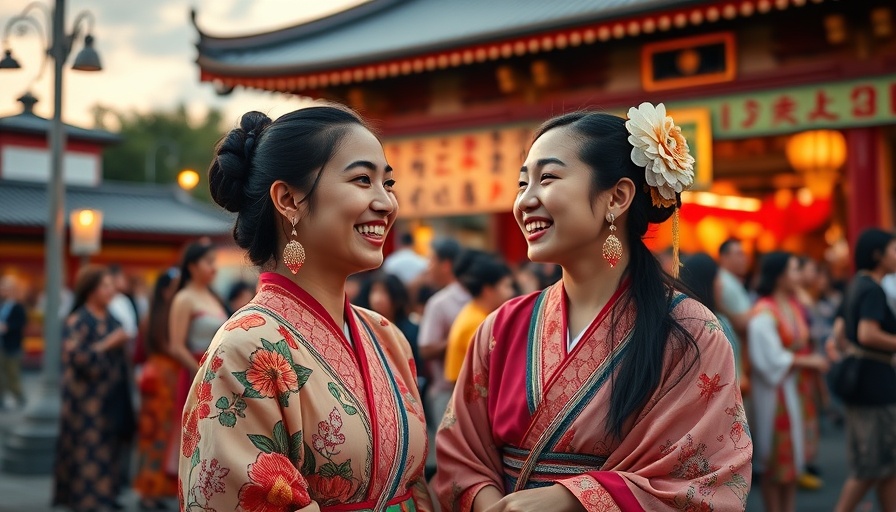
Celebrating Ancestors: The Heart of San Jose’s Obon Festival
San Jose's annual Obon Festival stands as a vibrant representation of Japanese heritage, attracting hundreds of participants and attendees to Japantown. This year's celebration, held on July 12-13, 2025, not only serves as a cultural festivity but also as a poignant reminder of the significance of honoring one's ancestors.
The Significance of Obon: A Cultural Pillar
The Obon Festival, famously recognized as the largest of its kind in the United States, originated in the Buddhist tradition as a period to honor deceased relatives. Held by the San Jose Buddhist Church Betsuin, this festival allows participants to re-establish a connection with their past, reminding attendees that honoring ancestors is an integral part of preserving one’s identity.
Through thousands of attached lanterns illuminating the streets, each representing an ancestor, festival-goers don’t merely celebrate; they invoke memories and spiritual presence. Rinban Gerald Sakamoto, after four decades of leadership, conducted the ceremonies for the last time, infusing the event with a bittersweet sense of nostalgia and celebration.
The Main Attraction: Bon Odori Dance
At the core of the Obon Festival is the captivating Bon Odori dance—a ceremonial representation blending community, spirituality, and joy. Dancers, often dressed in colorful Yukatas, perform this dance as both an invitation to the spirits of the departed and a joyous celebration of life. This year, the dance was scheduled to commence at 7:30 p.m. on Saturday and at 6:00 p.m. on Sunday, bringing the community together for a shared experience.
Food and Fun: A Taste of Japanese Culture
Beyond spiritual observances, the festival immerses visitors in the rich flavors of Japanese cuisine. Tempting food stalls offered sushi, teriyaki, and unique treats like Taiyaki—sweet fish-shaped cakes filled with red bean paste. This blend of culinary delight and cultural celebration enhances the festival experience, creating a festive atmosphere for all ages.
A Look Back: The Legacy of Japantown
San Jose's Japantown holds a special place in the American landscape as one of only three remaining historically recognized Japantowns nationwide. As such, events like the Obon Festival reinforce not just community ties but also the preservation of culture in the face of globalization. Festivals such as this serve as critical historical touchpoints, reminding current generations of their roots while honoring those who paved the way.
Emotional Connections: Stories from Attendees
The Obon Festival is not merely about cultural practices; it also embodies emotional connections and shared memories. Attendees often reminisce about loved ones who have passed, sharing stories and laughter with fellow community members. As one festival-goer shared, "This festival brings back so many memories. It’s a time for joy as we remember our families." This sense of community fosters an environment where healing can happen, providing solace through connection.
Future of the Festival: Embracing Change
As the sun sets on Rinban Sakamoto’s leadership, the festival looks forward to new leadership that will carry the rich traditions forward. The potential for growth and adaptation is immense as younger generations continue to engage, finding new ways to celebrate their Japanese heritage while embracing the dynamics of modernity. The hope is that Obon will flourish, nurturing both old traditions and fresh interpretations.
Conclusion: A Call to Celebrate Cultural Richness
The San Jose Obon Festival offers more than just dance and food; it presents an opportunity to reflect, connect, and celebrate community. As we honor the past and embrace new beginnings, events like these remind us of the importance of preserving cultural richness in our ever-evolving society. Participate in future events, share stories, and keep the spirit alive. Celebrate with your community, whether through participation in festivals or by exploring cultural history.
 Add Row
Add Row  Add
Add 




 Add Row
Add Row  Add
Add 

Write A Comment